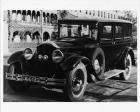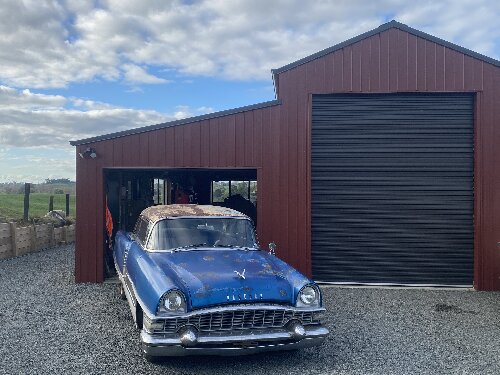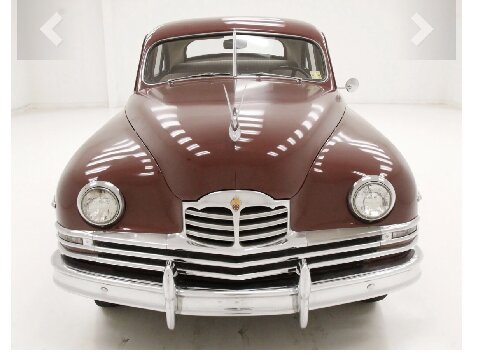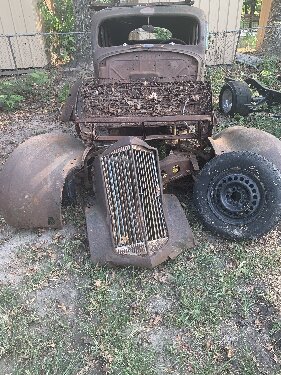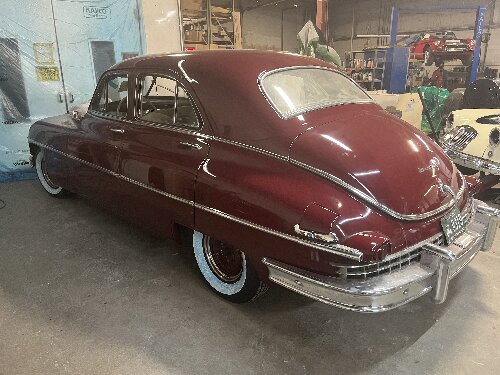|
Re: oil viscosity question....
|
||||
|---|---|---|---|---|
|
Home away from home

|
YES, YOU GET APPROX 40w
Posted on: 2016/11/9 22:53
|
|||
|
||||
|
Re: oil viscosity question....
|
||||
|---|---|---|---|---|
|
Home away from home
|
It's not that easy, but for sake of not causing a long thread and millions of questions, the "W" means it's "cold cranking" rated. The problem is they measure each weight for "W" at a different temperature to preserve the "pumping" rate. So the kinematic viscosity is a curve not linear. Also, depends alot on the additives.
If you said SAE 30 and SAE 50, it would be simpler. The number is related to kinematic viscosity. The dynamic viscosity could vary alot. One of many links to read up on. http://www.machinerylubrication.com/Read/411/oil-viscosity
Posted on: 2016/11/12 10:06
|
|||
|
||||
|
Re: oil viscosity question....
|
||||
|---|---|---|---|---|
|
Home away from home
|
'Jim', thanks for the link and brief explanation. I had heard somewhere that mixing two different grades of gasoline would result in a rating higher than the higher of the two used in the mixture. Any truth to this? Seems counter to my thinking. Thanks in advance.
(o[]o)
Posted on: 2016/11/12 10:41
|
|||
|
We move toward
And make happen What occupies our mind... (W. Scherer) |
||||
|
||||
|
Re: oil viscosity question....
|
||||
|---|---|---|---|---|
|
Home away from home

|
The issue here is essentially whether the hydrcarbons are the same. If the hydrocarbon for 30 weight is different than 50 weight then mixing them 50/50 will produce 50% 30 weight and 50% 50 weight. In a refining silo the base oils are separated by layer so thinning heavy paraffin with kerosene is not going to produce motor oil.
I suppose a simple test might be to simply try the mix in an engine and look at the oil pressure. My guess is it will be lower than the proper grade because the light oil will flow faster. However, that might not be a bad thing because valves benefit from light oil.
Posted on: 2016/11/12 16:04
|
|||
|
||||
|
Re: oil viscosity question....
|
||||
|---|---|---|---|---|
|
Home away from home

|
While the petroleum engineers and experts are paying attention, I have a somewhat related question about a "fact" that I heard years ago. Basically,it involves a military specification (MilSpec) that allows for intermixing of oil brands, just as long as they were within this Spec, so that nothing detrimental would happen to gas or Diesel engines if oils were mixed. This might even allow for accidental intermixing of synthetics and Dino-based vehicle lubricants, not that we would want to knowingly do so.
Presumably, this would avoid the problem of brand record keeping that would have to accompany each engine. If the government bought it and it was the proper viscosity, the GI mechanic could add or replace it without recrimination. Any validity to this, anymore?
Posted on: 2016/11/13 14:54
|
|||
|
||||
|
Re: oil viscosity question....
|
||||
|---|---|---|---|---|
|
Home away from home

|
There is no problem mixing different weights/types of motor oil. If there were, the universe would require a log sheet under the hood so the gas station attendant could reference it when adding oil.
When your oil is low add the needed amount of a weight appropriate for the current ambient temperature and just enjoy the ride, the world will not end.
Posted on: 2016/11/13 20:23
|
|||
|
||||
|
Re: oil viscosity question....
|
||||
|---|---|---|---|---|
|
Home away from home
|
MIL spec eliminates alot of things, as well. You'd have to look up the particular one. They can be very specific to one product. But you're correct, if the mil spec matches they are interchangeable. eg, pure silicone oil made the same way by different manufacturers.
SAE generally goes by application. There's a two or more letter "service code" on most all the oil sold in a small circle. eg; "SJ". So long as that's the same or newer, generally there's compatibility. But not all motor oils are the same, in terms of additives. For instance, ND - non detergent is not useful in most modern engines. But Fred is correct, if you add a qt of current off the shelf 10W30, it's not going to matter short term whether is valvoline, shell, or store brand so long as the service numbers match. Some brands provide better engine life than others. I generally recommend to test your oil at intervals, after 2-3K miles, so you can get a good idea how well it lasts and how much junk your engine puts in the oil and set the change based on that rather than manufacturers/oil merchants recommend because depends on how you drive and fuels in your area. As to mixing fuel, unless one is an octane booster additive, I know of no fuels that combined offer higher octane than the sum of the two. If you fill up with 87 and top off with 93, it won't make the tank all 93. They sell after market race gas additive, octane boosters, etc. that in small quantities boosts octane. That was essentially what Tetraethyl lead did back in the day, aka leaded gas. The valve seat "lube" aspects of lead came after and is questionable to me. Most all of it went out with the exhaust, and only passed the intake for brief milli-seconds so could not be real effective. I remember more fouled valve stems back then. But gas was alot "dirtier" (ash, sulfur, etc) back then too.
Posted on: 2016/11/13 21:10
|
|||
|
||||




